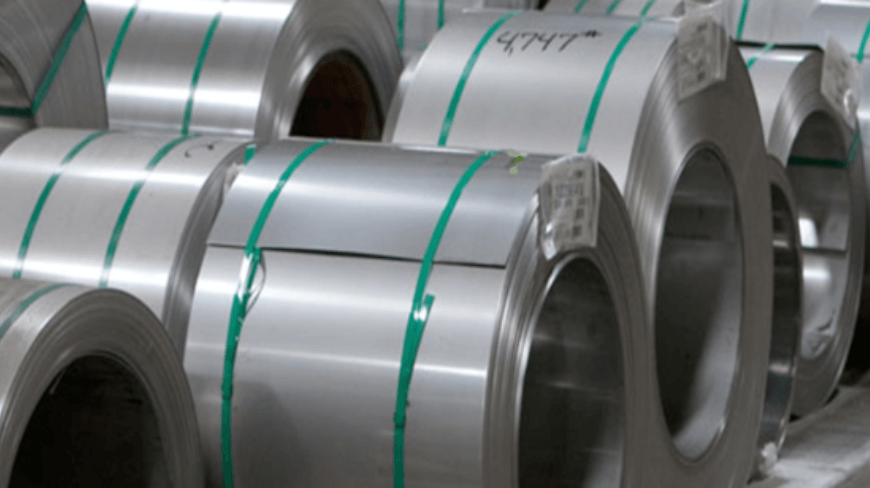Steel production is a cornerstone industry that builds buildings, infrastructure, machinery, and many other essential elements of modern life. But steel is a complicated and dynamic process that is full of challenges. Steel manufacturers face a number of challenges that require innovative solutions. In this article, we discuss the problems faced by the steel industry and how the best ERP for manufacturing industry can help solve them.
1. The difficulty of the supply chain:
The process of making steel is complicated because it involves many different parts like getting the raw materials, transporting it, making it, and distributing it. Manufacturers face a big challenge in coordinating these different elements to ensure a smooth flow of materials and components. Any disruption or delay in the supply chain can lead to production problems, increased costs, and missed deadlines.
ERP software helps companies manage their supply chain and improve visibility across the entire value chain. ERP software can give you real-time information about inventory levels, production schedules, and supplier performance. Manufacturers can use this information to make their purchasing better, reduce supply chain risks, and make their work more efficient. Also, using advanced computer programs can help manufacturers predict how much they need, predict problems that might happen, and solve problems with the supply chain before they get worse.
2. Keeping track of things:
Steel manufacturers need to keep production going while reducing carrying costs and excess inventory. But managing a lot of raw materials, work-in-progress, and finished goods is a big challenge. Without real-time inventory visibility and accurate demand forecasting, manufacturers risk overstocking, stockouts, and inefficient use of resources.
ERP solutions can help manufacturers keep track of inventory levels, track material use, and streamline procurement processes. ERP systems provide real-time visibility into inventory movements and allow manufacturers to keep optimal stock levels while reducing carrying costs. Also, demand planning and forecasting tools help manufacturers plan for customer demand, make production schedules, and reduce excess inventory. ERP solutions make it easier for manufacturers to manage their inventory and make things run smoothly. This helps them sell more things faster, work better, and make more money.
3. Making things better:
Steel companies always try to make things faster, cheaper, and better than what customers want. But getting the best efficiency in steel production is a complicated process that requires careful coordination of resources, equipment, and workflows. Any inefficiencies in production processes, like equipment downtime, bottlenecks, or quality issues, can lead to production delays, increased costs, and reduced profitability.
ERP solutions help production workflows, automate repetitive tasks, and give you real-time visibility into production performance. By integrating production planning, scheduling, and execution processes, ERP for manufacturing industry allows manufacturers to synchronize production activities, allocate resources efficiently, and minimize downtime. Advanced computer programs and smart thinking help companies plan their work better, arrange tasks in a good order, and allocate resources based on what people want and how much space they have. ERP solutions also help companies improve production performance, identify opportunities for process optimization, and make data-driven decisions. By using ERP technology, steel manufacturers can improve productivity, cut costs, and make themselves more competitive in the marketplace.
4. Control of the quality:
In steel manufacturing, it's very important to make sure the product is good. Even small mistakes or mistakes can cause problems with the product's safety and performance. But it's hard for manufacturers to keep quality standards consistent across a lot of production. Without quality control processes in place, manufacturers risk making defective products, having to rework or recall them, and hurting their reputation.
ERP solutions can help manufacturers enforce quality standards, monitor product quality, and keep track of quality-related data throughout the production process. ERP systems help manufacturers use standard inspection procedures, collect quality data in real-time, and find quality problems early in the production process. ERP solutions also help root cause analysis, corrective action management, and continuous improvement initiatives by providing visibility into quality metrics, trend analysis, and performance analytics. ERP systems help manufacturers demonstrate compliance with regulatory requirements, industry standards, and customer specifications. By using ERP technology to improve quality control processes, steel manufacturers can improve product quality, reduce defects, and make customers happier.
5. Compliance with the rules:
People who make steel have to follow many rules and rules that are specific to their industry. Navigating this regulatory landscape requires meticulous record-keeping, documentation management, and adherence to strict compliance requirements. Failure to meet regulatory requirements can lead to fines, penalties, and bad press for manufacturers.
Business ERP helps companies follow rules, meet industry standards, and meet customer requirements. ERP systems help manufacturers meet regulatory requirements and comply with quality, safety, and environmental standards. ERP solutions also have built-in compliance tracking, reporting, and monitoring features that manufacturers can use to keep track of compliance status, find areas of non-compliance, and take corrective actions. ERP systems can be configured to enforce compliance policies, reduce compliance risks, and keep the organization in compliance. Steel manufacturers can use ERP technology to make it easier to manage compliance. This can save money, reduce risks related to compliance, and make their reputation as reliable suppliers better.
6. Cost Management:
Steel manufacturers have a hard time keeping costs down in a competitive market environment. Manufacturers must use cost management strategies to improve costs, improve margins, and stay financially viable.
ERP software helps companies keep track of costs, analyze what causes costs, and find ways to save money. ERP systems provide real-time insight into cost structures, budget variances, and cost performance metrics. Use advanced accounting tools like activity-based costing, standard costing, and variance analysis to accurately allocate costs, analyze differences in costs, and find areas where things are not working well. ERP solutions also help improve procurement, supplier performance management, and contract management by providing insight into vendor pricing, lead times, and quality metrics. ERP systems allow manufacturers to monitor costs, measure performance, and make data-driven decisions to improve costs, improve profitability, and increase competitiveness.
To sum up, ERP solutions help the steel manufacturing industry solve many problems. ERP systems enable steel manufacturers to overcome obstacles, improve operational efficiency, and stay competitive in the global marketplace. As steel manufacturers continue to navigate the complexities of the industry.






